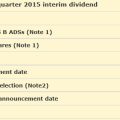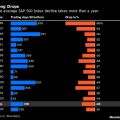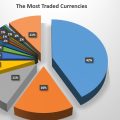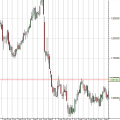Realtime Gold Spot Price Today
Current Spot Gold Price
Gold price by GoldBroker
How the Gold Price is Determined
Gold has long been considered a valuable commodity, prized for its beauty, rarity, and intrinsic value. However, the price of gold is not set arbitrarily; it is determined by a combination of market forces, economic indicators, and geopolitical factors. This article explores the key mechanisms and influences that determine the price of gold in the global market.
1. Supply and Demand Dynamics
The fundamental economic principle of supply and demand plays a crucial role in determining the price of gold. When demand for gold increases, prices tend to rise. Conversely, when demand decreases, prices usually fall. Several factors influence supply and demand:
Jewelry and Industry: Gold is widely used in jewelry making and various industrial applications, including electronics and dentistry. Changes in consumer preferences and technological advancements can impact demand.
Investment Demand: Gold is also a popular investment asset, viewed as a safe haven during economic uncertainty. Investment demand can fluctuate based on market conditions, investor sentiment, and global financial stability.
Supply Factors: The supply of gold is influenced by mining production, recycling of gold, and central bank reserves. Major gold-producing countries include China, Australia, and Russia. Any disruption in mining activities or changes in production levels can affect supply.
2. Market Speculation
Market speculation significantly impacts gold prices. Traders and investors in financial markets buy and sell gold based on their expectations of future price movements. Speculative activities can be influenced by:
Futures Contracts: Gold futures are standardized contracts to buy or sell gold at a future date and predetermined price. The prices of these contracts are influenced by market sentiment and can affect the spot price of gold.
Exchange-Traded Funds (ETFs): Gold ETFs are investment funds traded on stock exchanges, representing ownership in gold assets. The buying and selling of shares in these ETFs can impact gold demand and, consequently, its price.
3. Currency Fluctuations
The price of gold is typically quoted in US dollars. Therefore, fluctuations in the value of the dollar can influence gold prices. A stronger dollar makes gold more expensive for buyers using other currencies, potentially reducing demand and lowering prices. Conversely, a weaker dollar can make gold more affordable and attractive, increasing demand and pushing prices higher.
4. Interest Rates and Inflation
Interest rates and inflation are critical macroeconomic factors affecting gold prices.
Interest Rates: Generally, there is an inverse relationship between interest rates and gold prices. When interest rates rise, the opportunity cost of holding non-yielding assets like gold increases, making gold less attractive. Conversely, lower interest rates reduce the opportunity cost, making gold more appealing.
Inflation: Gold is often considered a hedge against inflation. When inflation rates rise, the purchasing power of currencies declines, leading investors to seek refuge in gold. This increased demand can drive up gold prices.
5. Geopolitical Events
Geopolitical instability and global events can have a significant impact on gold prices. During times of political unrest, war, or economic crises, investors often flock to gold as a safe-haven asset. This surge in demand can lead to higher prices. Conversely, periods of stability and economic growth may reduce the appeal of gold, leading to lower prices.
6. Central Bank Policies
Central banks hold substantial gold reserves and their policies can influence gold prices. Actions such as buying or selling gold reserves, as well as changes in monetary policy, can impact market perceptions and prices. For instance, if a major central bank decides to increase its gold holdings, it can signal confidence in gold, boosting demand and prices.
In summary
The price of gold is determined by a complex interplay of factors, including supply and demand dynamics, market speculation, currency fluctuations, interest rates, inflation, geopolitical events, and central bank policies. Understanding these factors can provide valuable insights into the movements of gold prices and help investors make informed decisions in the gold market. As a precious metal with a long history of value, gold continues to be a critical asset in global finance, influenced by a myriad of economic and political factors.






